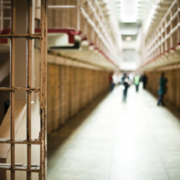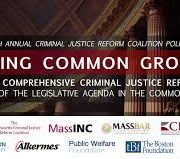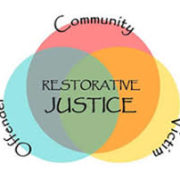
Prison reform is a frequent subject of discussion in our newsletters, and with good reason. Incarceration for minor crimes, such as drug possession, can break apart families and leave children without parents. Another added problem is that minorities such as African Americans and Latinos are incarcerated at a higher rate than white people. Reforming America’s prison system can create major positive changes for inmates who have committed nonviolent crimes. America can draw inspiration from foreign countries’ prison systems, particularly Scandinavian read more…

Today’s children face multiple stresses surrounding separation from family and community. This separation in and of itself is very stressful. The reasons for the separation are also stressful, and may include: Parent(s) who are addicted to opioids or substances causing them to neglect their children. Based on data from 2014 and earlier, about 1 in 8 children (8.7 million) aged 17 or younger lived in households with at least one parent who had a Substance Use Disorder (SUD). Parent(s) who read more…

. “Each year, an estimated 4.2 million youth and young adults experience homelessness, of which 700,000 are unaccompanied minors, meaning they are not part of a family or accompanied by a parent or guardian. On any given night, approximately 41,000 unaccompanied youth ages 13-25 experience homelessness.” – National Conference of State Legislatures (NCSL) | Youth Homelessness Overview Though we often consider our society to be quite progressive, the statistics of homeless children and teenagers is a testament read more…

We need more support for those who speak out about rape and assault, and we must believe in what the victims tell us. Regardless of their gender, income, background or anything else, we must demand that investigations take place and we must punish those who engage in this behavior. The Catholic Church is a good example of a group that is beginning to take responsibility for the rape and assault of our children. Finally this criminal behavior is being made read more…

Reforming the criminal justice system is a concern at the forefront of many activists’ minds. Since its creation, the American criminal justice system has broken up countless families through its harsh sentencings for relatively minor transgressions. There are generations of mothers and fathers, imprisoned for their transgressions against the law. Oftentimes these mothers and fathers belong to minority communities. Whether intentional or unintentional, there is a trend in the population of the incarcerated. The NAACP details the racial disparities in read more…

While many schools opt for the use of punitive justice, more and more schools are shifting toward a new method of addressing bad behavior: restorative justice. Instead of focusing on punishment, restorative justice seeks to facilitate communication between “problem” students and their peers. Students have opportunities to confront the consequences of their actions and find and fix the root of the problem. By teaching students how their actions can negatively affect others, schools can prevent future conflicts. In contrast, punishing read more…

Over three million American students were given detention in 2012 alone. In other words, students spent millions of hours in detention—hours that could have been spent studying, playing with friends or in the company of family. Most American schools follow a system of punitive justice, where students who misbehave are given some form of punishment that administrators believe fits the crime. Whether the punishment is something as simple as a timeout or as drastic as an expulsion, these methods can read more…

The near passage of the Criminal Justice Reform bill in Massachusetts marks a major shift towards a progressive penitentiary system. With an impressive 27-10 vote in favor of the bill, Massachusetts is taking the necessary steps for a brighter future. The repeal of mandatory sentences for minor drug offenses helps avoid dealing out unnecessary charges towards mothers and fathers of poorer communities. Oftentimes, the issue with drug-related sentences arises when law enforcement target lower class communities– communities primarily comprised of read more…








